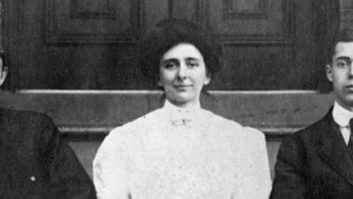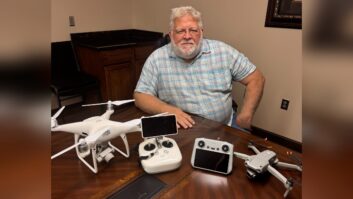I’ve just returned from a 3,000-mile vacation road trip that took me through and around several large cities, all having a good complement of AM radio stations.
Being curious about what passes for daytime programming these days, I made it a point to break away from the satellite-delivered radio in my minivan from time to time to listen to some of the larger stations.
It’s worse than I thought.

iStockphoto/Andrea Gingerich Lee de Forest, inventor of the triode vacuum tube and a very early broadcaster, was once quoted as saying, “What have they done with my child, the radio broadcast?”
If he were around today, I think his quote might be, “Please put my child out of its misery — with all due dispatch.”
Strident
He wouldn’t necessarily be addressing the programming (which is less than good in most cases). I think he would have a genuine problem with the amount and type of processing being inflicted upon the audio content by some of the programming and engineering brains that should know better. What are the large corporate radio group owners thinking these days?
Do they really believe that they can boost ratings by tweaking frequency response to a strident and nauseating boominess, and then cranking up the compression so that their audio is reminiscent of that delivered via the “power mics” championed by the CB crowd? (“Blow Their Ears Off With Dynamic Speech Processing!”)
Can someone at these stations explain why such obnoxious processing is considered necessary these days? Is it like tattoos and piercing? “I’m doing it just because everyone else is”?
Even when there was something I really wanted to hear — a weather or traffic report — the audio from many stations made me so uncomfortable that I didn’t even wait for the reporting to end before switching back to Sirius XM or a CD.
It reminded me of the seating in a fast-food restaurant that’s designed to be so uncomfortable that it encourages a fast turnover of clientele. I can’t possibly imagine anyone listening to such overly processed audio for any length of time.
The odd thing is that when I got home and sampled the Internet audio streaming from some of the worst offenders, the Web version of their audio wasn’t that bad. While I won’t say listening was a real pleasure, it was head and shoulders above what they were wasting lots of electrical power and RF spectrum on.
I’m not sure if the FCC has targeted the AM broadcast band for other purposes just yet (not sure who they’d try to sell it to), but these stations — and you know who you are — are certainly making a fine case for another spectrum grab.
How much is too much
This reminds me of a story passed on by J.W. Caluger, formerly of WSM, about another large-market 50 kW clear, the chief of which didn’t care to become a combatant in the first AM loudness wars waged back in the 1960s.
According to this story, the unnamed chief had managed to stave off a series of program directors who came and went with predictable regularity and who all had in common a belief that the surefire way to top ratings was via loudness.
Finally the station hired a bulldog of a PD who, with his ever-present cup of coffee, would stop by the CE’s office every few days to inquire as to how the procurement for audio processing gear was coming along.
On one occasion, the dialogue went something like this:
PD: Just when are we going to be able to start processing our audio?
CE: Well, I done told you that them processers adds distortion.
PD: How much distortion is too much?
CE: Well, let me put it like this: If I held an eyedropper of piss over that cup of coffee, how many drops would be too much? One or two?
Reportedly, the PD turned around without saying a word and exited the CE’s office, never to return.
The author is technology editor of TV Technology magazine and a contributor to Radio World. Opinions are his own.







